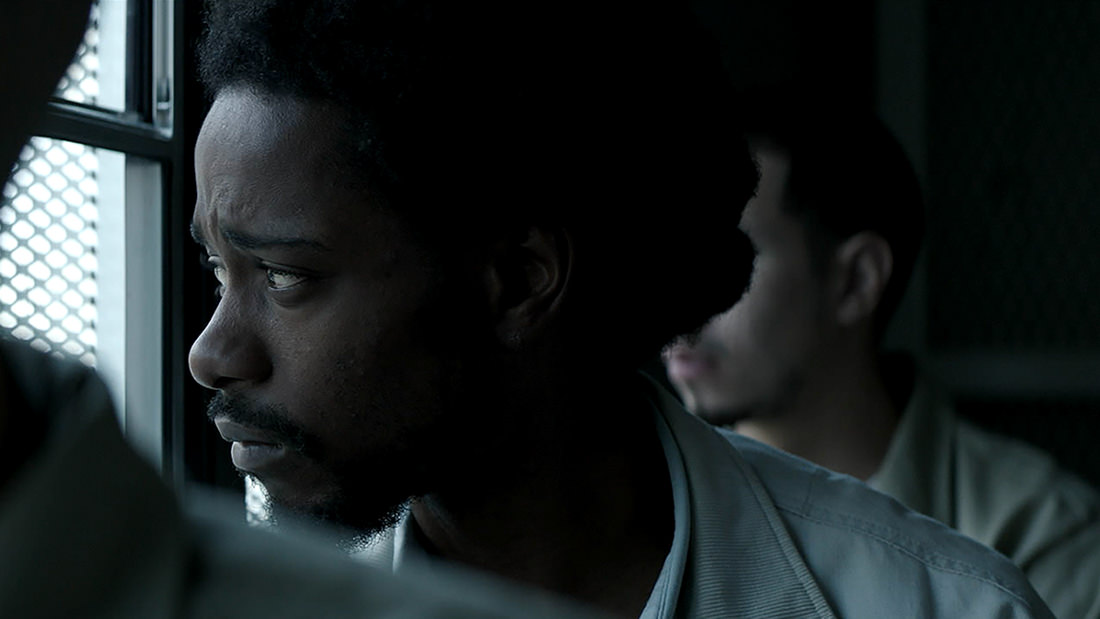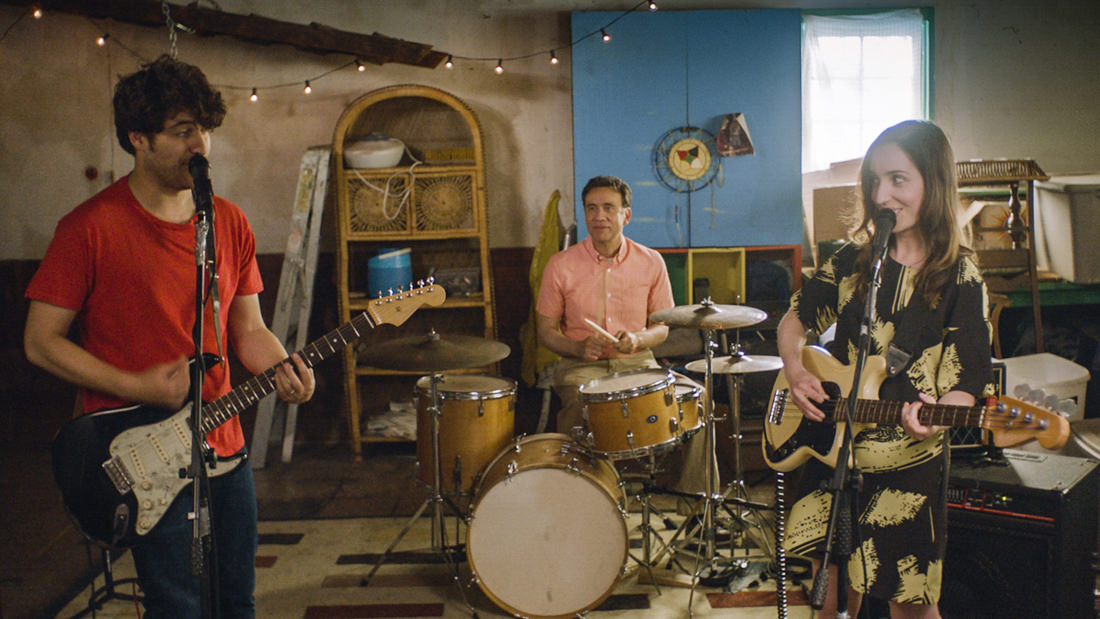There’s a sense of apprehension about Sundance films that don’t premiere over the weekend. The fact is that a lot of industry and press start taking off as early as Monday morning. And the programmers know this fact, so scheduling a premiere after the weekend signals a sense of doubt on the festival’s part. Now, this theory has been proven wrong in the past. There have been great films that premiered Monday or Tuesday, which is the final day for U.S. Dramatic Competition titles to premiere. And this year’s late-opening Comp titles were, as a whole, better than the mediocre slate that I saw from the weekend. In fact, only one qualifies as a disappointment. The other three all have elements that come together enough to recommend them.
Zoe Lister-Jones’ “Band Aid” references Amazon’s “Transparent,” and it feels like a writer/director knowing that her film actually seems a bit too much like a sitcom itself, but it’s a streaming service or pay cable-quality sitcom, so that criticism doesn’t hurt like it once did. The point is that “Band Aid” may be slight, a bit stagey and not too visually striking, but it’s also heartfelt, funny, and straight-up enjoyable.
Lister-Jones plays Anna, who struggles a bit emotionally after a recent failed book deal and a miscarriage from a year ago. She’s open with her feelings, but her husband Ben (Adam Pally) keeps it more internal, sitting around on the couch too much and similarly disappointed by a few roadblocks with his own creative dreams. The result is a relationship in disarray as Anna and Ben fight almost every time they see each other. While high at a friend’s kid’s birthday party, they grab some kid instruments and start improvising a song about their latest conflict. They continue the idea at home. What if they fed their marital issues into “hate songs” (the opposite of love songs)? They get their strange neighbor (Fred Armisen) to be their drummer, and they actually write some pretty fantastic indie pop songs, healing along the way.
“Band Aid” works because Pally and Lister-Jones make their partnership feel genuine. We believe Anna and Ben are a couple, in part because of the performances, but mostly because Lister-Jones’ script resonates with truth. This is a surprisingly truthful, heartfelt film. Sure, it still falls into too many TV comedy traps to completely transcend its set-up—and I wish there were more of its honestly excellent songs—but given the disastrous potential for forced manipulation that could have happened, “Band Aid” is about as good as one could have hoped.

Something similar could be said about “Burning Sands,” a solid drama that’s going to suffer by being compared to a U.S. Dramatic Comp title from last year, “Goat.” Gerard McMurray’s drama has more ambition than last year’s hazing drama, as well as interesting racial undertones that the other film did not. It also has an excellent performance at its center from “American Crime” star Trevor Jackson.
He plays Zurich, one of the most popular kids at Frederick Douglass University. He has a devoted girlfriend, his teachers like him (including one played by Alfre Woodard), and the dean (Steve Harris) has sponsored him to join the most prominent fraternity on campus. We see Zurich at the beginning of Hell Week, the period in which he’s heavily hazed with four of his other buddies. It starts simply enough with physical drills and bizarre rules, but we all know the intensity is going to get turned up every day, and that “Burning Sands” will likely end in tragedy.
McMurray and co-writer Christine Berg’s script subtly plays with race throughout the film. There’s inherent power in the image of a young black man being spanked or branded in the basement of a Southern frat house. And the idea that these strong men would submit to this willingly starts to haunt Zurich, who hears quotes from his school’s namesake like “It’s easier to build strong children than to repair broken men.” The key to the success of this film though, even with Trevante Rhodes of “Moonlight” in the supporting cast, is Jackson. Also great on ABC’s drama, this kid is gonna be a star.

Another star continuing to rise at this year’s festival was Keith Stanfield, who also appeared in supporting roles in “The Incredible Jessica James” and “Get Out,” but is front and center in Matt Ruskin’s “Crown Heights,” a well-intentioned drama that suffers from some poor filmmaking decisions even if Stanfield’s work never does. The “Atlanta” star plays Colin Warner, a young man in Crown Heights in 1980 who’s falsely accused of a shooting. Despite almost no evidence and unreliable witnesses, Warner goes away for the crime, and he could have stayed there forever if not for the diligence of his best friend Carl King (Nnamdi Asomugha), who never gave up on getting him out.
Clearly, there’s enough story here for an impactful drama. In fact, there’s too much. Ruskin tries to cover Warner’s decades-long imprisonment, and so he has to basically tell his story on fast forward. Scenes never go on for longer than a minute, and dialogue is blunt and designed to convey the facts more than any sense of place or character. The movie is so sped up and the characters aren’t allowed to breathe that it plays like a preview for itself. Even with that fatal flaw, the writing and production values are sub-par. Pushing through all of these negative elements is Stanfield’s performance, finding honesty whenever he can. I just wish the movie around him was anywhere near as good.

Finally, we have Eliza Hittman’s solid “Beach Rats,” a drama with a strong lead performance and even stronger sense of place. As she did in “It Felt Like Love,” Hittman captures young people on the verge of discovery in Brooklyn. Like so many young people, Frankie (Harris Dickinson) lives for the moment. He spends most of his days with his bros, another three guys who wander the boardwalk with him shirtless, try to find weed to smoke, play handball, and do a whole lot of nothing. More than once, Frankie jokingly says they’re not really his friends, but there’s a part of him that’s not joking. They’re just guys of the same age, background, interests, and physical build who hang out together. There’s a girl Frankie meets on the boardwalk who’s into him and his dad is dying of cancer.
Frankie has a secret. He’s gay. He spends his nights surfing gay video chat websites, first awkward and uncertain of what to do but quickly meeting strangers for hook-ups by the beach. He doesn’t tell his mom, sister, or his buddies. And he takes an increasingly high number of risks in his hook-ups as the wall between his closeted and straight worlds threatens to come down.
“Beach Rats” works best in its least plot-heavy moments. Scenes with the guys meandering the boardwalk, hanging out on the beach, or playing games have both an authenticity and an artistry courtesy of Hittman’s intimate direction that focuses on backs, hands, and other body parts glistening in the sun. When she’s forced to push the narrative forward in the final act, the film falters. It both relies too much on an unbelievable climax and doesn’t quite come together at the same time. Where she does go doesn’t seem as heartfelt as the rest of the piece so the ending is unsatisfactory. Still, Dickinson’s turn is a revelation, grounding the film in something so believable that you forget you’re watching a performance.












